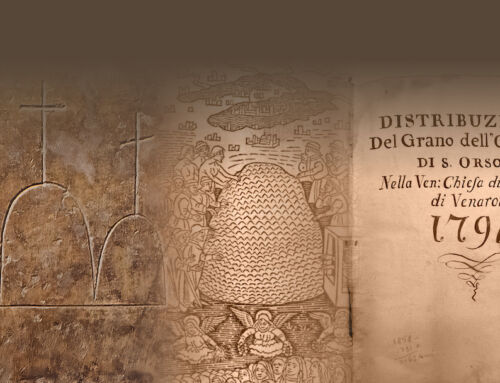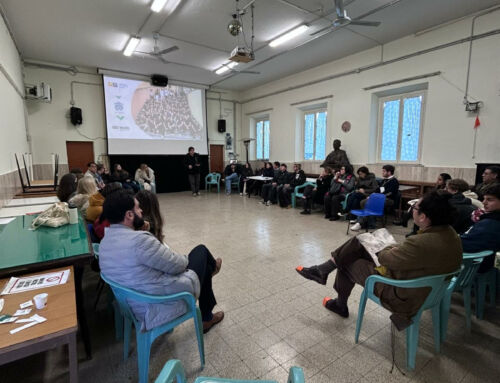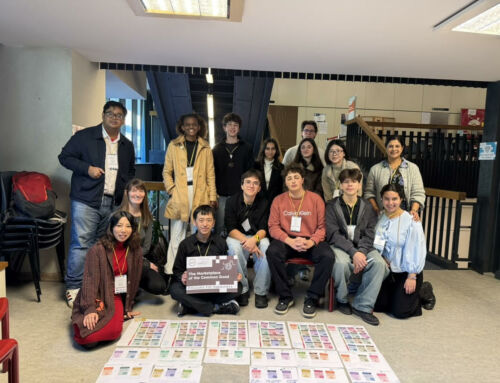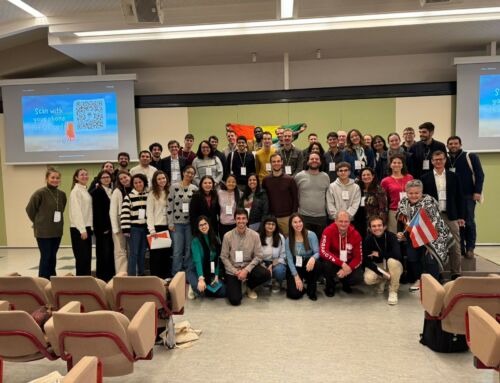The sentinels of the thousand and one nights
Paolo Santori Friday, January 27, 2023.
Original publication in: Avvenire.
The event is to express solidarity with those in Iran and Afghanistan who are protesting against the violence, crimes, and abuses that are affecting women in particular.
Interviewed by his students, the Italian economist Giacomo Becattini (1927-2017) in 2002 thus said, “The well-being of a given place is not truly so if it is accompanied by the discontent and/or the degradation of a large part of the rest of the world” (New Humanity, 766). Becattini adopted and developed the teaching of British economist Alfred Marshall, who affirmed that businesses (like people) live and understand themselves in relation to the territory in which they develop, a territory made up of other businesses, communities, cultures, and lifestyles. To understand the tree, therefore, it is necessary to look at the forest. It is therefore beautiful and significant that in the interview Becattini, the theorist of industrial districts and ‘place awareness’, talks about a forest that is so vast that it encompasses the whole world. Such sensibility seems contrary to the general feeling and even to the Western tradition (from Cicero to Adam Smith, the dominant idea is that we naturally care more about those around us). Becattini’s phrase implicitly recalls Amartya Sen, philosopher and Nobel laureate in economics, who upon reading the parable of the Good Samaritan drew from it the lesson that the “neighbor” is not always our neighbor. Proximity arises from an awareness of another’s need and from mutual help. Pope Francis wrote something very similar in his latest encyclical Fratelli Tutti.

Becattini, Sen, and Pope Francis are leading figures for the young economists, businesswomen, and entrepreneurs of the Economy of Francesco who will march in support of Afghan and Iranian women on Jan. 28. The aim is to express solidarity with those in Iran and Afghanistan who are protesting the violence, crimes, and abuses that are affecting women in particular. The medium, which had been tried out in a worldwide streaming event on Dec. 7, is that of a reading marathon of the Oriental tales The Thousand and One Night. The protagonist of the tales is Shahrazad who, in order to save herself from the Persian king Shahriyār – who usually took women as wives only to kill them on their wedding night – told the king a thousand and one stories and in the end saved all lives (her own and those of the future wives). The Economy of Francesco proposes something similar in spirit but different in content. The invitation is to organize a public reading of some of the tales from The Thousand and One Night in one’s own city, followed by a public discussion on what is happening in Iran and Afghanistan. So many cities have already joined from all over the world, indicating that the forest is sensitive to what is happening to the trees. However, we might ask why protest symbolically if, unlike Shahrazad, reading stories will not save anyone this time. There are at least three reasons.
First, the Economy of Francesco is doing what the people to whom the event is dedicated have requested. Let our voices be heard, don’t forget us. Today, every social and political issue is removed within days of its media blast.
Hence remembrance is a rare commodity. Thus, it is necessary to be vigilant, as lookouts guarding a problem for which there is (perhaps) no immediate solution, but regarding which we cannot turn away. To use Sen’s words again, the Economy of Francesco would rather be indignant and deal with evident injustices than invest resources in the pursuit of perfect justice. The alternative is to sit, quietly and astonished, next to Thrasymachus when, in his dialogue with Socrates (in Plato’s Republic), he explains that justice has been and always will be the profit (sympheron) of the strongest.
The second reason is the conviction that the civil aspect is the foundation of the political one and not vice versa. History teaches us that lasting social changes are almost never those imposed from above, but those that responded to ideas already internalized by people. That is why a protest is never a private good, but always a common good. At the beginning of her protest, Greta Thunberg was protesting alone (tree) in front of the Swedish parliament, but she was already doing so on behalf of all those who had within them a deep need for ecological justice (forest). Thus, the Economy of Francesco demonstrates to affirm that the actual conditions – violence, crime, abuse, inequality – should not be legitimized by any earthly or divine law. Mary Wollstonecraft (1759-1797) in her text A Vindication of the Rights of Women 1792 sharply criticized philosopher Jean-Jacques Rousseau for dividing the type of education of men (rational) from that of women (servile). Wollstonecraft pointed out to Rousseau the undue shift from “what is” to “what is good to be”, that is, the passing off of a historical contingency (the wife enslaved to her husband) as a law of nature. Tomorrow, Jan. 28, the Economy of Francesco will repeat Wollstonecraft’s message, applying it to what is happening in places where women are denied access to universities, among many other things.
Finally, it cannot be ignored that the act of protest transforms and also defines those who protest. To some, it might seem strange that a group of people who should be concerned with the economy would organize symbolic protests for issues of social justice. Nothing could be worse than such an idea. The aim of the Economy of Francesco, initiated by Pope Francis and the Franciscan charism, is to give a soul to the world economy through the thinking and work of young people. One of its pillars is precisely the idea that human beings are much more than just self-interest (or any refined form of it). A natural tendency exists in people to intentionally care for the good of others (from the nearest to the farthest, from one’s neighbor to the planet) without expecting anything in return. Certainly, we are still at the level of the anthropological hypothesis rather than the scientific fact. But this is the path laid out by and for the Economy of Francesco. Thus, the January 28 event is one of the milestones of the journey of young women and men economists and entrepreneurs, who had been working for three years now for a new economy. Our hope is that those who today, unfortunately, are denied access may soon join us on that path.
To join or organize an EoF Reading Marathon for March 8th, visit www.francescoeconomy.org










